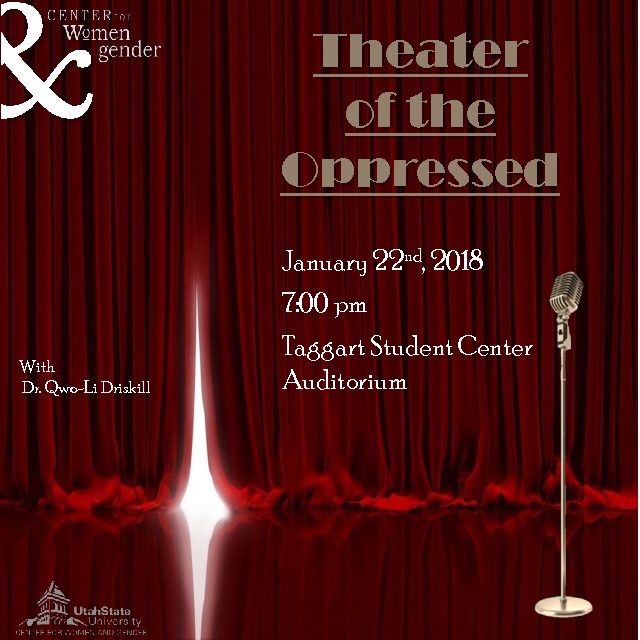USU students to act out controversial topics in Theatre of the Oppressed
On Monday, Utah State University students will have the opportunity to be both a participant and a witness at the Theatre of the Oppressed at 7 p.m. in the TSC auditorium.
At the Theatre of the Oppressed, a facilitator will indicate various situations for on-stage participants to act out. These topics are often controversial and may be centered around LGBT housing, female work environments, racial issues and gender roles. Audience members are encouraged to stop the performance at any time and interrupt the actors to ask questions about their behavior in the on-stage situations.
“This exercise really helps to get into the deep structure of biases,” said Ann Berghaut-Austin, director of the Center for Women and Gender and a professor of human development and family relations at USU. “For instance, the moderator may tell the actors to play out a situation in which a woman is trying to get a job at a trucking company. Can a woman be a trucker? If she can be a trucker, what are people going to be asking her about at her job interview? You kind of go with the flow and the actors and audience can interrupt each other. It’s a very interesting procedure.”
A modified version of the Theatre of the Oppressed was last created at USU about 11 years ago, at a time when the campus was not a welcoming place for female faculty, Austin said. The principle investigators of an advance grant pulled together comments and questions asked of female USU faculty at their 10-year promotion meetings for the event. These questions ranged from inappropriate to illegal and were compiled as anecdotes to be used in the Theatre of the Oppressed.
“There were people in the audience basically shouting down the actors,” Austin said. “Even when most of it is made up, you get so invested in it. You are really hooked in because you know there’s a very large amount of truth in the situations acted out onstage. It can be jarring.”
Austin believes Utah State students will be interested in attending the event because, although many students may not be surrounded by ethnic or religious diversity, they are sincerely interested in discovering how the world works and what it would feel like to live in another part of the country where diversity is strong.
“What if you were caucasian and were the minority in the classroom? Or were in a classroom where a lot of students had come out as LGBT? What would that feel like to be in an environment where people were a little more free to be different? I really believe USU students want to know about diversity so they can handle it respectfully and properly,” Austin said.
Students may attend the event as on-stage actors, participating audience members, or quiet observers. Those who wish to perform at the event can contact the Center for Women and Gender at cwg@usu.edu.
— mekenna.malan@gmail.com
@kennamalan

